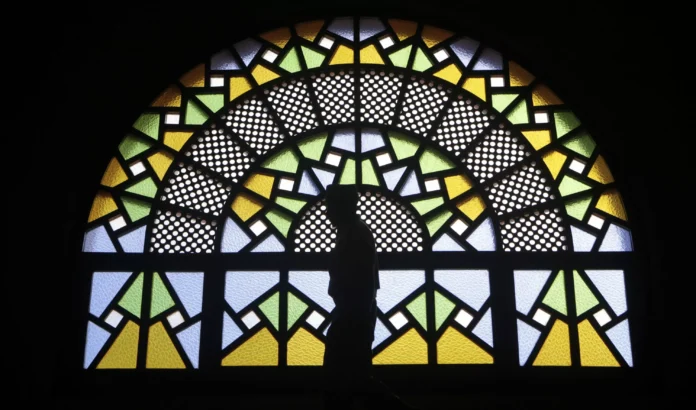Uganda’s President Yoweri Museveni made a historic move on Wednesday, as he launched the country’s first interest-free commercial Islamic bank. This move marks a significant step towards the development of the country’s financial sector and provides a much-needed alternative for the Muslim community in Uganda.
The bank, known as the Islamic Banking Window, will operate under the roof of the already established DFCU Bank. This means that the Islamic bank will have access to DFCU’s existing infrastructure, allowing it to serve its customers more efficiently. This partnership between the two banks is a testament to the government’s commitment to promoting financial inclusion and supporting the growth of Islamic finance in the country.
Islamic banking is based on the principles of Shariah law, which prohibits the charging of interest on financial transactions. This form of banking operates on profit and loss sharing, where the bank and its customers share both the risks and rewards of any investment. It also follows strict ethical guidelines, such as avoiding investments in businesses that deal with alcohol, gambling, or other prohibited activities.
President Museveni highlighted the importance of this new bank, stating that it will provide an avenue for the Muslim community to access financial services that align with their religious beliefs. He also emphasized the potential of Islamic finance for the country’s economic growth, saying, “the introduction of Islamic banking will create more competition, leading to better financial services and increased financial inclusion for all Ugandans.”
The launch of the Islamic Banking Window is a result of years of collaboration between the government of Uganda and the Islamic Development Bank (IDB). The IDB has been providing technical and financial support to the country in establishing an Islamic banking system. This partnership has also led to the development of a regulatory framework that ensures the smooth operation of Islamic finance in Uganda.
The establishment of an interest-free commercial bank in Uganda is a significant achievement, not only for the country but also for the East African region. It is the first of its kind in the region and is expected to attract investors from neighboring countries. This will not only boost Uganda’s economy but also strengthen its ties with its neighboring nations.
The launch of the Islamic Banking Window comes at a time when the country is facing economic challenges due to the COVID-19 pandemic. The pandemic has highlighted the importance of having a diverse and resilient financial system. The interest-free banking system is known to be more stable and less prone to economic crises, making it a suitable alternative for the current times.
The Islamic Banking Window will initially offer a range of products and services such as current and savings accounts, financing for small and medium-sized enterprises, and trade finance. It plans to expand its services to include home financing, car financing, and insurance in the future. This will provide a broader range of financial solutions for both individuals and businesses, catering to the needs of the Muslim community and the general public.
The launch of the Islamic Banking Window has been met with enthusiasm and positivity from various stakeholders, including the Muslim community, regulators, and the banking sector. It is seen as a step towards promoting financial inclusion and fulfilling the country’s goal of achieving a middle-income status by 2040.
In conclusion, the launch of Uganda’s first interest-free commercial Islamic bank is a significant milestone for the country’s financial sector. It not only provides an alternative for the Muslim community but also promotes healthy competition and innovation in the banking industry. With the support of the government and the IDB, the Islamic Banking Window is poised to contribute to the economic growth and development of Uganda. This move is a testament to the country’s commitment to promoting diversity and inclusivity in all aspects of its society.


